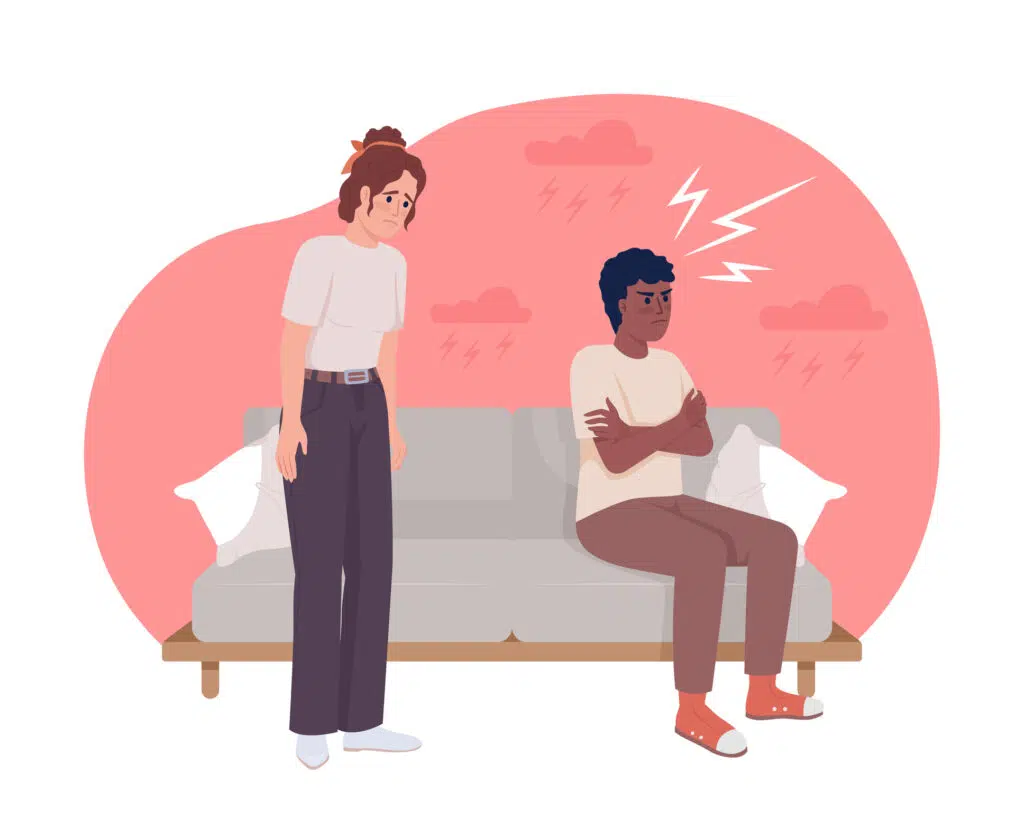What Is The Difference Between Psychiatry And Therapy?

The world of mental health can feel confusing. The task of finding a therapist who best suits your individual needs is not an easy one. It can take days, weeks, or even months of painstaking research and sifting through information on websites, review boards, and different groups before coming to a decision.
Then there’s also the question of who you should see. Do you make an appointment with a counselor, a psychologist, or a psychiatrist? What’s the difference between psychiatry vs therapy? The relationship between a patient and a therapist is an intimate one, so we want to make sure that you find the right person to support you on your journey.
What Is Psychiatry?
Psychiatry officially became a medical specialty back in the 1800s. Modern psychiatry focuses on prescribing medication and working with the patient to gain a deeper understanding of their condition. It is a profession that aims to understand the complex blend of human behavior, the mind, emotions, psychology, and biology.
A psychiatrist is a medical doctor who specializes in mental health, which can include substance abuse and drug disorders. They look to diagnose, treat, and prevent a range of mental health and emotional disorders, like:
If you choose to have a psychiatrist consultation, it doesn’t mean you will automatically go on medication. It could be to discuss your condition from a medical point of view, check if you are suitable for medication, or receive a treatment plan.
Psychiatrists and psychologists often work closely together as your mental health team. Your psychiatrist may leave the counseling to a psychologist if they think it might benefit you. In many cases, talk therapy works well alongside medication management.
Why See A Psychiatrist Vs Therapist?
Many people think about psychiatrists, psychologists, and therapists as similar professions. While they are all focused on mental health and well-being, they are different.
Psychiatrists typically deal with serious mental health conditions that affect a person’s ability to function or cope, like major depressive disorder, ADHD, and bipolar disorder. Psychiatrists can prescribe medication and handle medication management which involves recommendations on adjusting dosages, changing medication, and discussing your feedback on previous medication.
For example, treatment for an individual with depression could include cognitive behavioral therapy (CBT) and anti-depressant medications. Research suggests that psychotherapy and anti-depressants have been shown to be helpful in treating depression, with some evidence suggesting that combining them may be more effective than either treatment alone. In this example case, the individual would visit a therapist for cognitive behavioral therapy sessions and see a psychiatrist for medication management. Any treatment plan should be personalized to you as people respond differently to treatment. With mental health treatment and recovery, results don’t happen overnight. Your mental health team is there to guide you and recommend the most suitable course of treatment based on the best evidence available.
What Is Therapy?
Therapy, also known as psychotherapy or simply ‘talk therapy,’ is a treatment aimed at helping to alleviate mental and emotional distress.
All licensed and trained mental health professionals can provide therapy in different settings. However, it is important to remember that a therapist cannot prescribe medication. Only a psychiatrist can prescribe medication as they are a medical doctor.
Within psychology, therapists utilize many specialties and methods to treat and improve a range of mental health problems like depression and anxiety. First, let’s look at some of the different types of therapists you may come across:
- Counseling psychologists – licensed professionals trained to provide therapy using several different modalities, e.g., psychotherapy and cognitive behavioral therapy.
- Clinical psychologists – hold a doctorate in psychology and are trained to treat mental disorders within clinical settings like hospitals or mental health facilities.
- Cognitive psychologists – as the name suggests, they focus more on understanding how an individual’s thinking processes work.
- Clinical Social Worker – many different types of social workers provide counseling in different areas of life, such as school, family, senior centers, hospitals, etc. A clinical social worker is a professional trained to diagnose and give counseling in both individual and group settings, with a focus on mental health.
- Licensed Mental Health Counselor – a licensed professional with a master’s degree and years of supervised clinical work experience. They are trained to be able to give diagnoses and counseling in both individual and group settings.
- Psychologist – an individual who specializes in human behavior and talk therapy, though they do so much more. They hold an advanced degree in psychology and years of clinical work experience under supervision.
Now let’s look at the different therapeutic frameworks therapists might utilize:
- Psychoanalysis focuses on working closely together with the individual to gain a better understanding of how the subconscious forms meanings and motivations.
- Behavioral therapy focuses more on working to change self-destructive behaviors and programmed responses toward certain challenges and difficulties.
- Cognitive therapy focuses more on what you think than behavioral therapy. So it aims to change how we think about certain things that may cause mental or emotional distress.
- Holistic therapy takes a holistic approach to help patients. Holistic therapists do not tie themselves to just one therapeutic framework but instead adjust their treatment plan to suit the individual’s needs, often using elements from different approaches.
Within psychology, there are various types of therapists and approaches. In addition, a therapist can also be a specialist in a certain condition. For example, you can have a Licenced Clinical Psychologist that specializes in anxiety, phobias, and ADHD using a combination of Cognitive Behavior Therapy (CBT), Acceptance Commitment Therapy (ACT), and mindfulness-based practice.
What Is The Difference Between Psychiatry And Therapy?
People often confuse psychiatrists and psychologists with one another. They sound very alike, so it’s understandable that you might confuse the two. Generally, psychiatry and therapy look to help and support various mental health conditions. But, they approach mental health differently. It’s important to understand how the two differ so that you can seek help from the professional that best suits your needs.
What Can Psychiatrists Do That Therapists Cannot?
A psychologist is trained to diagnose and treat individuals, couples, families, and groups in various settings. One of the key differences between a therapist and a psychiatrist is that a psychologist can’t prescribe medication.
A psychiatrist is a physician who specializes in treating mental disorders. As medical doctors, they can both prescribe medication and counseling. A psychiatrist uses physical exams, lab tests, and medication to help both treat and prevent mental, behavioral, and emotional disorders. A therapist can’t prescribe medication to patients. A psychiatrist will go to medical school and become a medical doctor before specializing in mental health.
Is It Better To See A Psychiatrist Vs A Therapist?
There is no one-fits-all approach to mental health, as it depends on your situation. Do you already have a diagnosis? Are you seeking a diagnosis?
Are you in a place of crisis (i.e., your life is in danger), or do you just need someone to help guide you through a challenging patch?
These are all important questions to consider. If you’re experiencing debilitating mental health symptoms that severely interfere with your ability to function daily, then a psychiatrist may be a good place to start. If you need an assessment and possible medication, a psychiatrist can both diagnose and prescribe medication.
But, if you’re working through a problem and feel like talking about it would help, then therapy may be a more suitable option. Visits with a psychologist are more frequent, usually weekly. This helps to establish a relationship and a concrete treatment plan with goals to work towards.
Ultimately, it’s hard to say if it’s better to see a psychiatrist vs therapist because every situation is unique. Your treatment plan depends on your case. While both therapists and psychiatrists focus on treating mental health conditions, their approach is widely different.
Psychologists and psychiatrists are both trained and ready to support and address various mental health conditions. The reality is that you don’t need to know who you need to speak with to start getting help. A mental health professional or physician can point you in the right direction and help you decide on the best course of action based on your situation.
When treating mental health conditions, it’s important that you find the right fit for you. With therapy vs psychiatry, the right path comes down to the individual and the condition being treated. For some, therapy alone may be just right; for others, a combination of therapy and medication management is ideal for recovery.
If you’re struggling with your mental health or concerned about a loved one, we can help connect you to the specialist that fits your individual needs. Call our offices today in New York, California, Massachusetts, Illinois, Washington, Florida, Minnesota, New Jersey, and Oregon, or schedule an appointment online.

How to Move On After a Friendship Breakup
Friendship breakups can sting just as much as a romantic breakup. After all, you’re experiencing a loss of shared history and an understanding of each other that can leave you feeling lonely and isolated. Not all friendships are forever, but moving on from the loss of a friendship does take time and some self-compassion.

Signs You’re in a Toxic Relationship
A toxic relationship can chip away at your well-being and happiness. Toxic partners can be manipulative and charming, making it difficult to recognize the signs that you’re in a toxic relationship. You deserve to be in a supportive and healthy relationship.

10 Common Marriage Reconciliation Mistakes to Avoid After Infidelity
Infidelity can leave couples devastated. If you’ve been affected by infidelity and want to salvage your relationship, rebuild trust, or make a tough decision, keep reading for 10 common reconciliation mistakes to avoid after infidelity.

Survey: 72% of Americans are Stressing About the Upcoming Presidential Election
Political viewpoints in the U.S. have always been contentious, but is the impact of politics in the United States making it difficult for people to live their everyday lives? With some anticipating another brutal and long campaign season ahead of the upcoming 2024 presidential election, nearly half of Americans say politics is negatively impacting their mental health.




